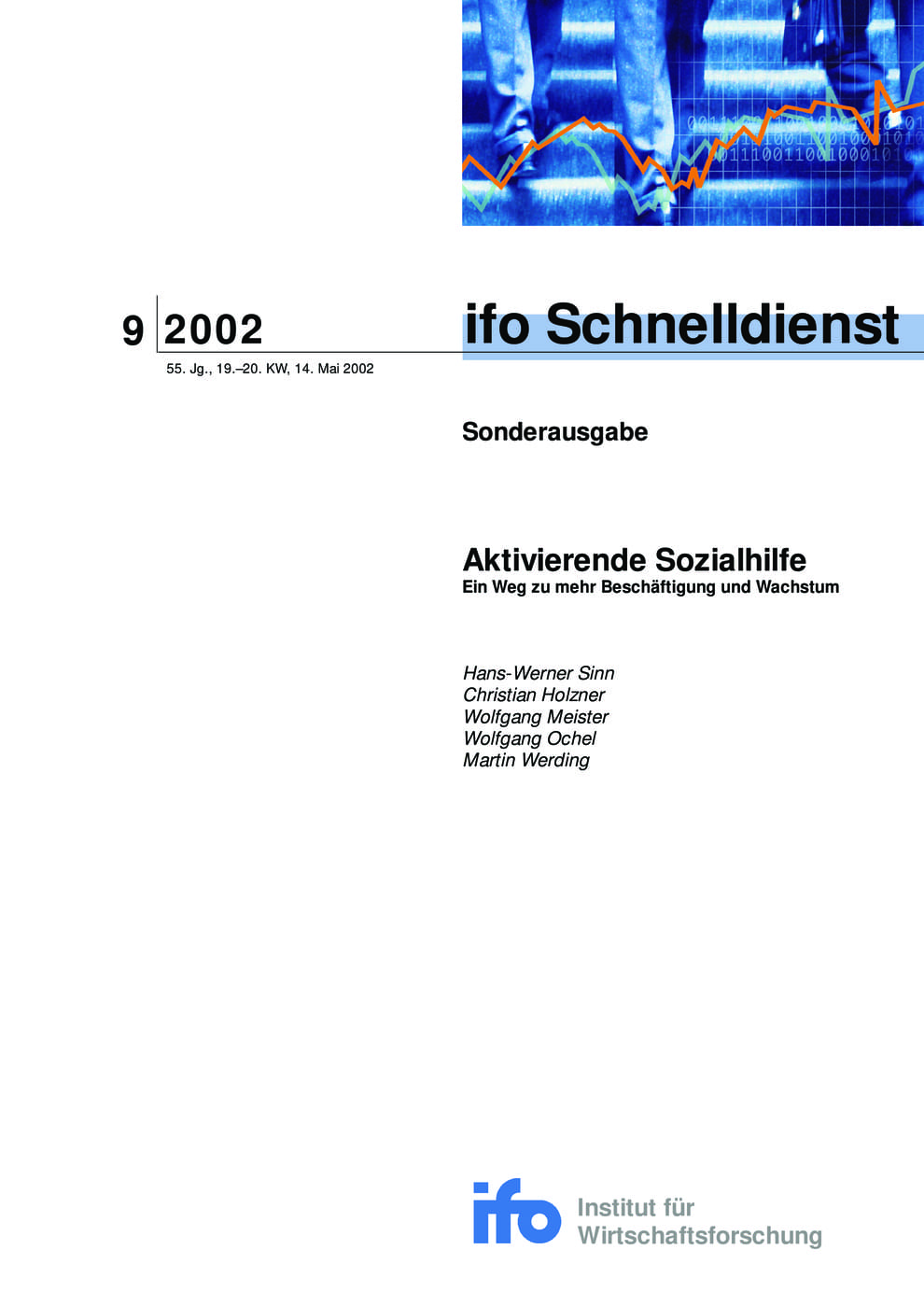Active Welfare - A path to higher employment and growth
ifo Institut für Wirtschaftsforschung, München, 2002
ifo Schnelldienst, 2002, 55, Nr. 09, 03-52

The welfare state was created to correct the failures of the labour market and to establish more social justice than the market can provide. But the welfare state itself has contributed to the obvious defects in the labour market. Social assistance is a particular problem today since it establishes a fixed wage floor in the collective agreement system. Few people are willing to work for a wage below welfare payments. No enterprise will employ someone whose wage is higher than the value added he creates. Unemployment in the low-wage sector is the result. The Ifo Institute has taken the initiate by demonstrating how the problematic implications of social assistance can be avoided and how the labour market in the low-wage sector can be re-activated. The basic idea is to help those who are unable to earn a sufficient income from their own labour by offering wage supplements instead of wage compensation. The condition for state assistance is that the worker makes some contribution, depending on his ability. The present condition, that the worker withdraw from the regular labour market, would be eliminated. With this change in requirements for state assistance, wages in the low-wage sector would erode, making it attractive for enterprises and private households to create new jobs. The proposal is designed such that the state would have no extra burdens and that former welfare recipients would receive more income from an earned wage and state supplements, even with a part-time job, than they now get from social assistance.